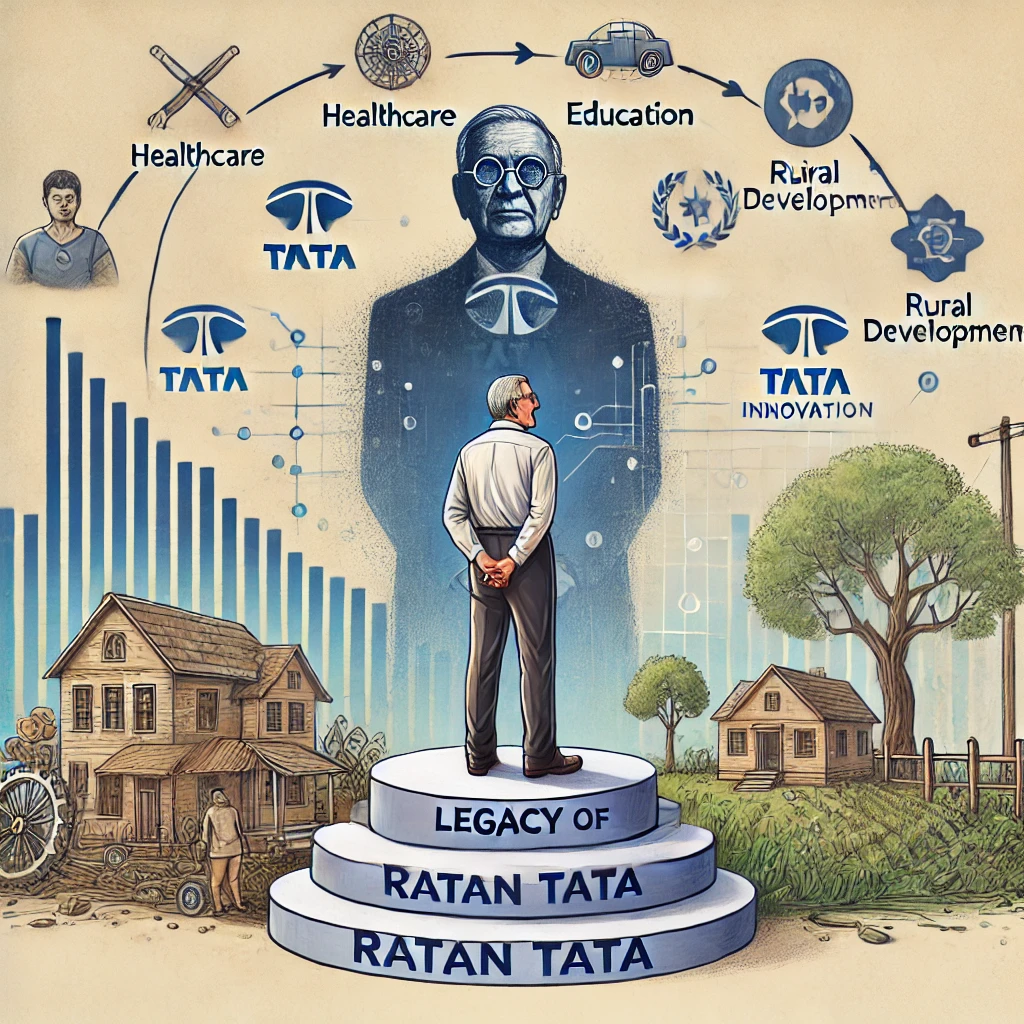The Tata Trusts have long been a cornerstone of India’s philanthropic landscape, known for their vast contributions to education, healthcare, rural development, and more. Founded by the Tata family, the trusts play a key role in driving the social impact strategies of the Tata Group, one of India’s largest conglomerates. However, with Ratan Tata at the helm for several decades, questions arise about the future of the Tata Trusts and what kind of legacy it will retain even after his involvement wanes.
In this article, we will explore the anticipated changes, challenges, and future directions of the Tata Trusts in the post-Ratan Tata era, shedding light on what may lie ahead for one of India’s most respected charitable institutions.
A legacy of philanthropy and social impact
The Tata Trusts, as they exist today, have arisen from the charitable instincts of the Tata family. Known for his ethical leadership, Ratan Tata transformed the Tata Trusts into an organisation focused on meeting India’s most pressing social needs. With initiatives ranging from improving rural healthcare to advancing education in underprivileged communities, the Tata Trusts under Ratan Tata’s guidance became a symbol of moral responsibility and nation-building.
Major Contributions Under Ratan Tata’s Leadership
Ratan Tata’s era saw many pioneering initiatives. Some of the major contributions include:
- Healthcare Initiatives: Tata Trusts funded hospitals, cancer treatment centres, and mental health programmes, providing critical healthcare infrastructure across India.
- Education and Scholarships: From establishing schools and institutions to providing scholarships, Tata Trusts created opportunities for countless students.
- Rural Development: Empowering farmers and rural communities, the Trust funded sustainable agricultural practices and watershed projects.
- Innovation and Technology: Collaborations with organisations such as MIT were aimed at promoting technology-driven solutions for social good, with an emphasis on innovation.
These contributions cemented Tata Trusts’ reputation as a powerful catalyst for change in India, ushering in an era of sustainable and inclusive growth.
Changes expected in the post-Ratan Tata era
The change in leadership of Tata Trusts presents both challenges and opportunities. Ratan Tata’s vision set high standards; therefore, it is essential to find leaders who share his ethics, compassion and commitment to continuity. Some of the potential changes and challenges include:
- Strategic shift in focus areas: The new leadership may refine focus areas, adapting to emerging social and environmental concerns. Areas such as digital education, mental health and climate resilience may gain importance in response to global trends.
- Sustainable financing: Tata Trusts’ large-scale projects require sustained financing to sustain. With new leadership, there may be an emphasis on building more partnerships with other non-profits and government bodies to ensure sustainability.
- Modernized governance structure: A key concern for the Trust will be governance, transparency and accountability. New structures may include an expanded board, increased stakeholder involvement and a focus on regulatory compliance, ensuring that operations are in line with modern philanthropic standards.
- Technological innovation in philanthropy: Future leaders can leverage data analytics, artificial intelligence and digital tools to monitor, manage and maximize the impact of their initiatives, enabling Tata Trusts to remain relevant in the digital age.
Key figures to watch in Tata Trusts leadership transition
As Tata Trusts enters a new era, several key figures are set to play key roles. The trusts could look from within the Tata family or bring in external experts in philanthropy. Current Tata Sons chairman N. Chandrasekaran and other trusted leaders of the Tata Group could potentially influence the direction of the trusts.
Challenges in sustaining the Tata Trusts legacy
Changes in leadership are often fraught with challenges, and the Trust is no exception. Balancing the founders’ principles with innovation can be a delicate task. Furthermore, the demand for impact-based and transparent philanthropy continues to grow, pushing the Trust to meet modern expectations while staying true to its roots.
There is also the challenge of ensuring that new projects align with India’s evolving socio-economic landscape, where issues such as digital literacy, climate action and mental health are gaining prominence.
Conclusion
The Tata Trusts have been and will remain one of India’s most respected philanthropic institutions. As Ratan Tata gradually steps back, the Trust is bound to experience a change in leadership, focus and strategy.
However, with a strong foundation in place, new opportunities await to further enhance Tata Trusts’ social impact while adapting to changing times while honoring Ratan Tata’s vision. Through a commitment to favourable governance, sustainable funding and transparency, the Tata Trusts are well positioned to continue transforming the lives of generations to come.
Frequently Asked Questions
1. What are Tata Trusts and why are they important?
The Tata Trusts are charitable organisations set up by the Tata family to promote social welfare. Known for its contributions to healthcare, education, and rural development, the Tata Trusts play a key role in Indian philanthropy.
2. How did Ratan Tata influence Tata Trusts?
Under Ratan Tata’s leadership, the trusts expanded their focus areas, impacting healthcare, education, and rural development. His vision emphasised ethical responsibility, sustainability, and inclusive growth.
3. Who will lead Tata Trusts after Ratan Tata?
While the exact leadership plan has not been revealed, individuals such as N. Chandrasekaran, the current chairman of Tata Sons, and other Tata leaders may play key roles.
4. What challenges may Tata Trusts face in the future?
The main challenges include maintaining Ratan Tata’s legacy, ensuring sustainable endowments, and adapting to modern philanthropic demands such as transparency and tech-based impact assessments.
5. How will Tata Trusts remain relevant in changing times?
By focusing on emerging issues such as digital literacy, climate action and mental health, Tata Trusts aims to stay relevant. Partnerships and innovation in governance will also help tackle future challenges.

